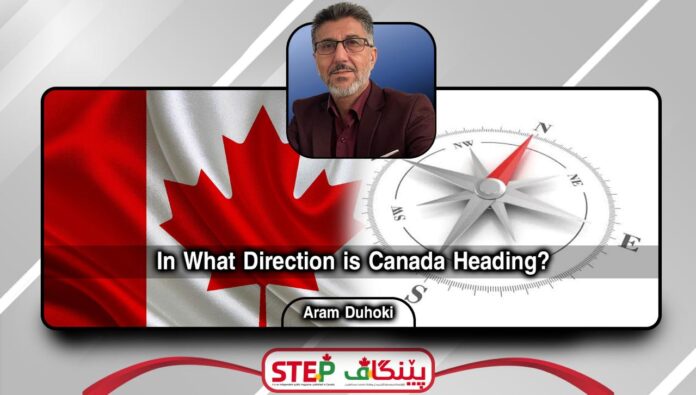Jamal Suleman (Aram)
This is a question that every Canadian politician considers, yet clear answers are seldom seen or heard. However, the most concerned individuals are ordinary Canadian citizens. The primary reason for the country’s heightened anxiety stems from the unprecedented global challenges we face today. From the COVID-19 pandemic and the ongoing war between Ukraine and Russia to the instability in Gaza and the looming threat of tariffs from former U.S. President Donald Trump, these issues—and many more—have placed Canada on high alert economically, politically, and systemically.
Since its founding on July 1, 1867, Canada has maintained a strong relationship with the United States, its only direct neighbor. The two nations share historical ties to Britain, a common language, cultural similarities, and a capitalist economic system. Moreover, Canada and the U.S. have been longstanding allies through NATO, making sacrifices together in both World Wars and beyond. However, in light of recent global challenges, these alliances are being tested. Economic crises are affecting nations worldwide, and the rising costs of security and defense are straining government budgets. The United States, which has long played a pivotal role in ensuring the safety of its allies—particularly in Europe and Canada—now demands that these nations increase their defense spending or face growing security threats from Russia and terrorist organizations such as ISIS.
Many countries, including Canada, are already struggling economically due to these global pressures. Canada, which has traditionally relied on the U.S. as a strategic partner, now faces an uncertain future as geopolitical tensions escalate. The rapid pace of change makes it difficult to predict what lies ahead, but it is evident that the world’s two major powers, the United States and Russia, are maneuvering to reshape global influence—particularly over Europe and developed nations like Canada. In this evolving landscape, countries must either accept the emerging world order or assert themselves as an independent force to counterbalance these global shifts—an extraordinarily difficult challenge.
Canada is currently experiencing one of the most uncertain periods in its history. It has been slow to address its economic crisis and adapt to a changing political landscape with increasingly complex challenges. While it is too early to determine the country’s exact trajectory, one can only hope that Canada does not find itself fulfilling Trump’s controversial assertion that it could become the 51st state—an outcome that the majority of Canadians would strongly oppose.





